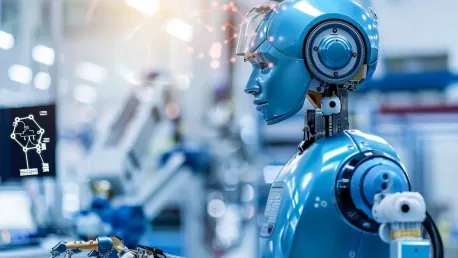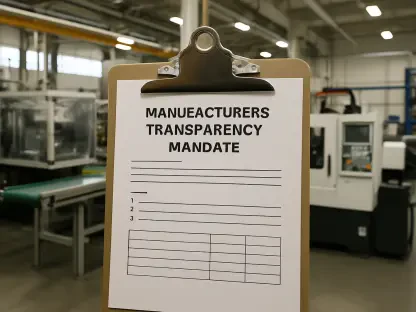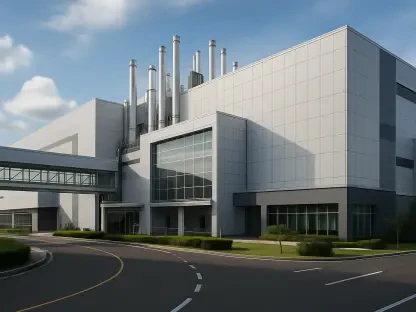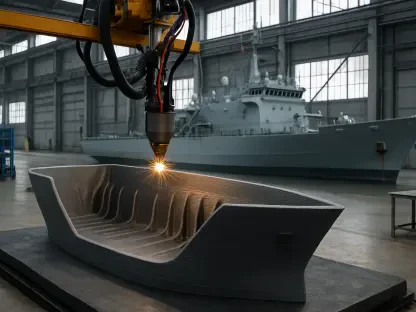The transformation of the manufacturing landscape through automation, incorporating robotics, predictive analytics, machine learning (ML), and artificial intelligence (AI), exemplifies how companies tackle multifaceted business challenges. In an era marked by competitive pressures encompassing supply chain disruptions, climbing operational costs, labor shortages, climate change implications, and volatile geopolitical climates, the pivot towards automation is proving indispensable for senior executives aiming to safeguard their organizations. This comprehensive shift has not only optimized productivity and reduced costs but also reshaped how manufacturers approach mergers and acquisitions (M&A), further enhancing their strategic positioning in a rapidly evolving market.
Evolution of Automation in Manufacturing
The concept of automation, despite its varying origin stories, became widely recognized during the mid-1940s, notably in the automobile industry’s mechanized production techniques. Since then, the scope and capabilities of automation have expanded exponentially, enabling solutions to complex business problems and transforming the manufacturing sector. Over the decades, advanced technologies like robotics and AI have moved beyond simple task automation to comprehensive system optimizations that touch every facet of production. This progression has brought about a paradigm shift in the way companies operate, focusing on efficiency, precision, and scalability.
Modern automation offers solutions to a wide array of business-centric challenges, influencing not just operational efficiencies but also significantly impacting mergers and acquisitions (M&A). With companies continuously seeking to stay competitive, the integration of new technologies has introduced unprecedented dynamics into the M&A arena. From enhanced data analytics and financial diagnostics to real-time equipment monitoring and predictive maintenance, automation is streamlining processes that were traditionally time-consuming and fraught with error. As a result, companies that effectively harness these technologies find themselves at a considerable advantage, both operationally and strategically.
Automation’s Role in M&A Valuations
In the current M&A landscape, the valuation of a company extends far beyond traditional metrics such as workforce size or revenue. Technological prowess, particularly in automation, has become a critical determinant in assessing a company’s true value, making it a significant factor for potential buyers or investors. Companies equipped with state-of-the-art automation technologies are often viewed more favorably, perceived as being more efficient, innovative, and future-proof. This shift recognizes the transformative power of automation in driving sustainable, long-term growth and operational excellence.
For instance, the synergistic use of cloud computing with machine learning facilitates the handling of extensive databases, thus enhancing deal sourcing, due diligence, and strategic planning. This technological integration allows for more sophisticated data analysis and management, making it easier to identify potential acquisition targets and evaluate their compatibility and value accurately. Consequently, companies leveraging cutting-edge automation tools position themselves more attractively in the M&A market, demonstrating their readiness to tackle future challenges and capitalize on emerging opportunities.
Tactical and Strategic Advantages
The tactical and strategic advantages afforded by automation are manifold, especially as AI and advanced robotics become integral to manufacturing processes. These technologies align seamlessly with growing environmental sustainability objectives, improving not only efficiency but also the company’s overall environmental footprint. By enhancing data capture and analysis, streamlining financial and strategic diagnostics, and enabling comprehensive ecosystem mapping, automation provides a robust framework for operational excellence. The real-time monitoring of equipment and the use of machine learning algorithms for predictive maintenance significantly minimize downtime and optimize resources, further strengthening a company’s financial health and market attractiveness.
These technological advancements have ripple effects throughout the organization, contributing to improved decision-making and strategic planning. Automation’s ability to perform complex diagnostics and predictive analyses offers managers and executives unprecedented insights into their operations, enabling more informed, data-driven decisions. Furthermore, this high level of operational efficiency and reliability makes automated companies more appealing to investors, who see the potential for sustainable, long-term growth and reduced risk.
Impact on Deal Sourcing and Due Diligence
Automation significantly influences various stages of the M&A process, particularly in deal sourcing and due diligence. Sophisticated databases equipped with advanced data analysis capabilities enable companies to efficiently identify robust potential acquisition targets, streamlining what was traditionally a labor-intensive process. Automation also enhances the accuracy and depth of background checks on owners and management teams, thereby reducing the risk associated with acquisitions. As technology continues to advance, we can expect even more rigorous and comprehensive assessments, potentially extending to behavioral analysis and other advanced metrics.
Enhanced analytical tools facilitated by automation also contribute to more effective strategy development, integration management, and sale preparation. These tools provide a detailed and nuanced understanding of potential deals, enabling companies to make more informed and strategic decisions. By integrating automation into the M&A framework, companies can navigate the complexities of these transactions with greater ease and precision, thereby maximizing value and minimizing risk.
Addressing Environmental and Sustainability Concerns
The drive for automation transcends mere operational efficiency and financial gain; it also has a direct impact on sustainability. Automation technologies contribute to environmental sustainability by optimizing resource use and reducing waste. This is increasingly relevant as boardrooms face greater scrutiny over Environmental, Social, and Governance (ESG) concerns. Companies that proactively leverage automation to address these factors can reshape their portfolios and enhance their appeal in the M&A market. By aligning their operations with broader sustainability goals, these companies position themselves as responsible and forward-thinking entities, further attracting investment and partnership opportunities.
As sustainability becomes a more significant factor in business decisions, companies that integrate automation to achieve their ESG goals can differentiate themselves in a crowded marketplace. This not only helps in complying with regulations and meeting stakeholder expectations but also provides a competitive edge by showcasing the company’s commitment to responsible and sustainable business practices. Consequently, automation becomes a vital tool for companies aiming to balance economic success with ecological and social responsibility.
Future of M&A in the Manufacturing Sector
The transformation of manufacturing through automation includes the use of robotics, predictive analytics, machine learning (ML), and artificial intelligence (AI). This shift highlights how companies address complex business problems. In a time characterized by competitive pressures such as supply chain disruptions, rising operational costs, labor shortages, climate change, and volatile geopolitical situations, embracing automation has become crucial for senior executives. This essential pivot not only boosts productivity and lowers expenses but also revolutionizes manufacturers’ approaches to mergers and acquisitions (M&A). By embracing such technologies, manufacturers can enhance their strategic positioning in a fast-changing market. Moreover, automation allows for better decision-making and increased operational agility. These advancements ensure that companies remain resilient and adaptable, which is vital for long-term sustainability and success. This transformation helps businesses navigate current challenges while positioning them for future growth in an unpredictable economic landscape.









